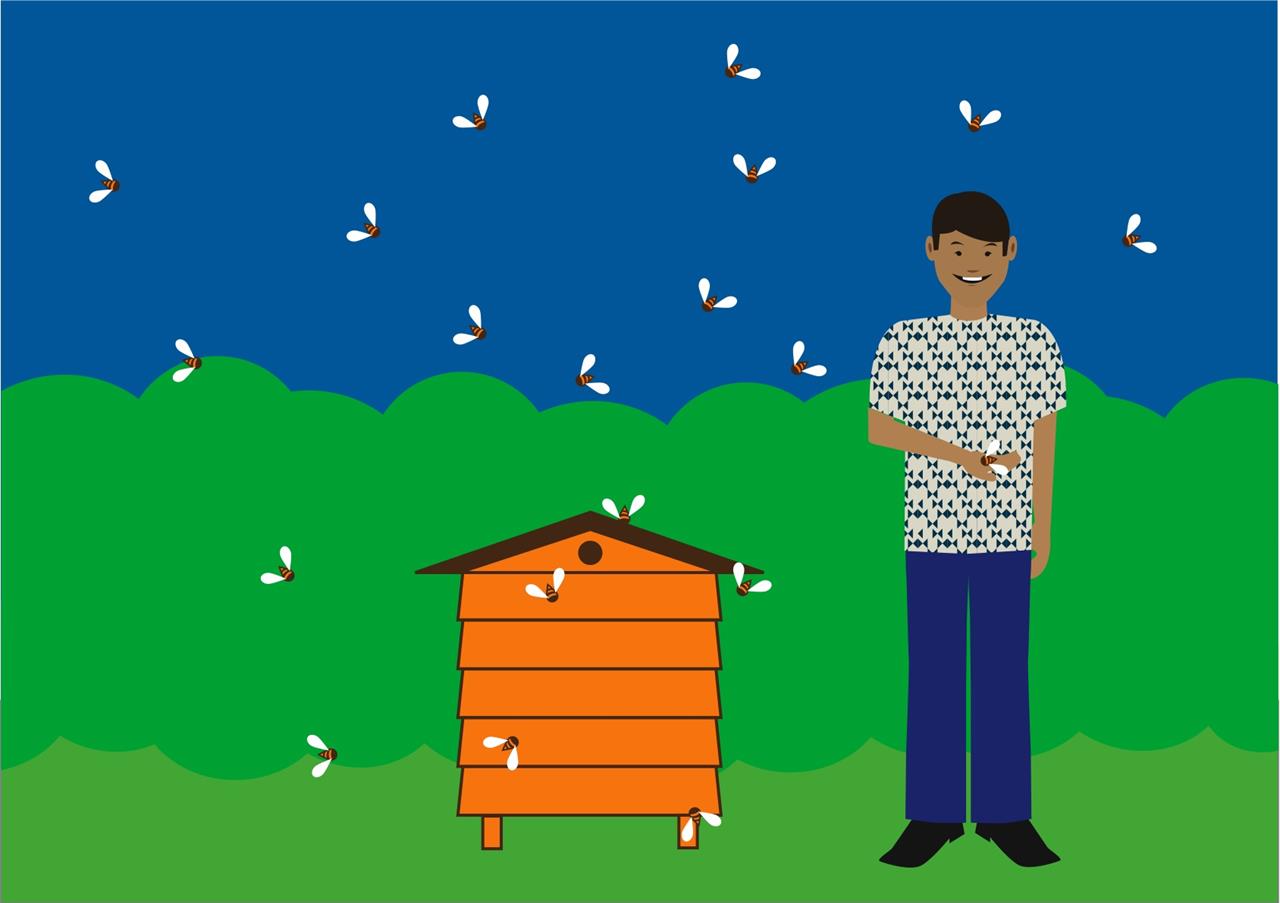Non profit
Copenhagen City Honey Coop
Non Profit ID card. A sustainable honey industry in the heart of the city gives work to the homeless

Non Profit ID card: present your project/organisation/campaign
Questions answered by Oliver Maxwell, Founder and Director, Copenhagen City Honey Cooperative
– Where are you based? Copenhagen, Denmark.
– What are you called? The Copenhagen City Honey Cooperative.
– What are you doing and why?Bees are responsible for one third of agricultural production and for the pollination of 85 % of wild flowers in Europe. We really need the bees, but they are under threat from climate change, exotic diseases and agricultural pesticides. We need more bees in cities, where there are fewer pesticides, a new generation of beekeepers, and a better way to market urban honey in Northern Europe.
We are putting together a sustainable and inclusive urban honey industry in Copenhagen. We work with formerly homeless, long-term unemployed and immigrants to create a new generation of beekeepers. We work with communities to create better habitats for bees. We are making a processing and marketing center to promote urban honey. Our vision is a city that buzzes with life!
– Do you have a website/email? www.bybi.dk; om@bybi.dk.
– Do you have a facebook link/name? Facebook: københavns Byhonning Kooperation
– What makes you so special? We have a unique partnership model that involves different social layers in the city in urban beekeeping. Social projects help us train refugees, formerly homeless and long-term unemployed people as beekeepers; business provides roof space for beehives. Local communities help provide jobs for the bees with insect friendly gardens and window boxes.
The turning point
– How did you start?A frosty evening after the end of the 2009 climate conference. Everyone was very gloomy about the failure of the talks. I biked past a bit of rough land and saw some beehives waiting for the spring. I was partly thinking about starting a new project, but mainly very curious about the bees and what they were doing in the city. The idea took shape after spending winter evenings with beekeepers and learning about the bees’ role in keeping the city green and blooming.
– What keeps you going every day? I have loved putting the project together and meeting whole new networks of people – from beekeepers and businessmen to homeless people and refugees. They all have a role to play and I am just looking forward to seeing them all connected with lots of bees and hopefully lots of honey.
– Who is your target? Our purpose is simple: More bees. But we are committed to squeezing as much social and environmental benefit from the project as we can. We are going to be running various projects to involve excluded groups in beekeeping over the next years.
– How are you financed? We will have a mixture of grant financing for our social projects and our own business income for the market orientated side of the project.
The challenge
– A proud moment?At our founding meeting, we had beekeepers; project leaders from some of the top NGOs in Denmark and business people stood up and endorsed our concept. We had a lawyer working for free to put our legal documents together. Afterwards he said he had never been to such a harmonious and positive founding meeting before.
– A problem you face?Getting enough money together in time for the start of the season in spring 2011.
– Your personal motto when things get hard? When I first got the idea, most people thought I was nuts. Lots of people still do. My friend said to me: “even if everything goes horribly wrong, you’ll be able to make a really funny story out of this period”.
– Another cool project/organisation/campaign you would like to recommend? Baisikeli in Denmark – recycling used Danish bikes and sending them to Africa.
Go to Vita Europe Non Profit ID card on Dreams Academy.
Click here to go to the full list of all our Vita Europe ID cards.
17 centesimi al giorno sono troppi?
Poco più di un euro a settimana, un caffè al bar o forse meno. 60 euro l’anno per tutti i contenuti di VITA, gli articoli online senza pubblicità, i magazine, le newsletter, i podcast, le infografiche e i libri digitali. Ma soprattutto per aiutarci a raccontare il sociale con sempre maggiore forza e incisività.
